-
Can Mercury Be Recycled?
While many people realize the importance of recycling their paper and plastic waste, not everyone knows that their electronics should be recycled in Atlanta as well. Items that contain mercury can and should be recycled to ensure that the mercury is properly handled and confined, and so fewer new materials need to be taken from the environment.
Watch this video to learn more about recycling mercury. When items containing mercury are improperly disposed of, they can release dangerous vapors that are harmful to people, wildlife, and the environment. If you need to get rid of an item that may contain mercury, contact a local waste disposal company to learn how you can safely discard it.
-
Training Employees on Your Company’s Recycling Policy
A company-wide recycling policy is a smart decision for lots of reasons. For example, depending on the industry you work in and the nature of the products or services you provide, recycling can help reduce your raw material expenses. A recycling policy is also good for employee morale and can even help with your organization’s outward facing brand identity. When you partner with a waste management and recycling company in Atlanta , coming up with a company-wide recycling policy is easy—it’s implementing the policy that can be a struggle. To help get everyone the same page as quickly as possible, here are some tips for training employees on your company’s new recycling policy.
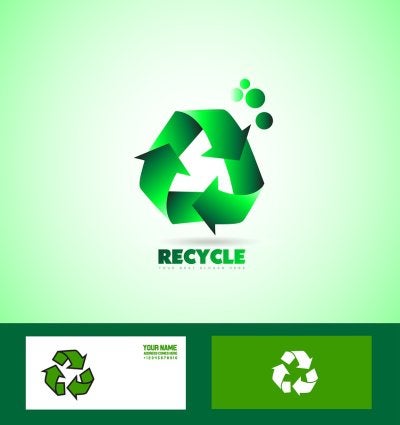
Assign a Recycling Coordinator
To help implement your new recycling policy, assign a dedicated recycling coordinator or appoint recycling “supervisors” in each department. Whoever is in charge, this person (or these people) will be the go-to when anyone has questions or concerns about recycling at work. Recycling supervisors should also be in charge of educating the rest of your workforce regarding best recycling practices.
Hold a Kick-Off Event
Another way to help get your workforce onboard and excited about recycling is to throw a kick-off event where you introduce the new recycling policy, talk about the benefits of recycling, and explain how it will benefit the company and as a result benefit the employees. Make this event fun so your employees leave feeling excited and energetic about recycling instead of just another boring workplace policy they need to follow.
Recognize Employees for Their Efforts
As your employees get used to the new recycling policy, recognize those employees who have bought in and are making efforts to ensure the recycling policy is successful. This will reinforce good recycling habits and encourage other employees to think about ways they can do better at recycling.
-
A Look at Computer Recycling
Hidden inside computers, even old ones, is a treasure trove of valuable and useful materials that can be transformed and made new. The precious metals inside of a computer are particularly important since recycling them helps reduce the amount of mining and extraction needed to supply makers with these metals. Watch this video to learn more about computer recycling and why you should never throw old computers away.
If you run a business, it’s especially important that you dispose of computers and other sensitive IT equipment as carefully as possible. For peace of mind that your data (and your customer’s data) is secure, trust your computers and sensitive IT assets with a reliable and experienced electronics recycling company in Atlanta . Whether you’re updating your entire IT infrastructure or need to dispose of a single laptop or desktop computer, a comprehensive electronics recycling provider will make sure things are recycling correctly.
-
Creating a Recycling Program at Your Residential Community
Whether you rent out a few multi-family homes, run a full-sized apartment complex, or oversee a senior living facility, if there’s one thing residential communities generate besides profits its waste. If you don’t already, it’s a good idea to institute a recycling program in your communities to do something that benefits the environment, your tenants, and your bottom line. A recycling program can bring your tenants together and show them that you care about the environment. It can also help attract new tenants who are eco-conscious and want to live in an apartment or condo that has practices responsible waste management. To help get you started, here are some tips for creating a recycling program in partnership with your waste management provider in Atlanta.
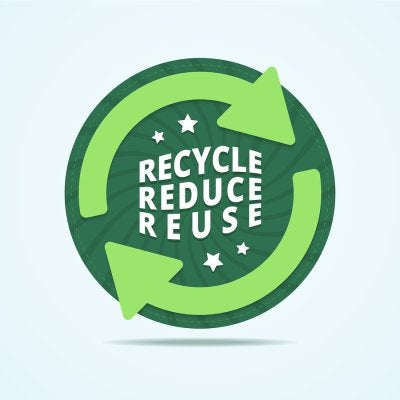
Consider “Single Stream” Recycling
One of the hardest things about implementing a recycling program, and getting everyone to participate, is the uncertainty around what recyclables go in what containers. This may seem like an arbitrary point, but it’s enough to keep a lot of people from recycling. Single stream makes things easier by combining multiple materials into one container. Recyclables are sorted and processed later on, making it as easy as possible for your tenants to participate in your community recycling program.
Educate Your Tenants
Touching on a similar point as mentioned above, one of the biggest hurdles in starting a successful recycling program is getting people to participate. That’s why you should make a point to involve and educate your tenants about the benefits of recycling and how you plan to make it easy, enjoyable, and convenient for them.
Make a Plan with a Professional
Depending on the size of your residential community, you might want to consult with a recycling professional to come up with the best recycling plan for your tenants. A waste management and recycling company can help you plan, implement, and oversee a recycling program that actually works. A professional can also tell you more about single stream recycling and other options you might want to explore.
-
Addressing Waste Management Concerns for Automotive Plants
The automotive industry is one of the fastest growing production industries in the United States. As the owner or operator of an automotive manufacturing facility, it is up to you to create a waste management plan that boost the efficiency of your production, while also helping to preserve the environment. A company offering dumpster rental near Atlanta can help you address your waste and plastic recycling for your automotive plant. By hiring a team of waste management professionals, you can help your waste management strategy evolve with the changing needs of your plant. Read on for a look at some of the most common waste management concerns for automotive plants.
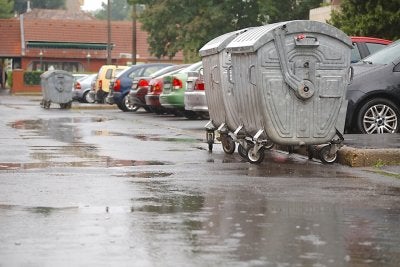
Environmental Concerns
One of the top waste management concerns for automotive plants is the environment. The typical automotive production process generates waste and materials that can be harmful to the earth’s ecosystem. However, by incorporating eco-friendly waste management methods into your automotive plant, you can ensure that you are addressing the environmental concerns of your business. Proper waste management can help preserve the climate and ecosystem for future generations.
Worker Safety Concerns
Along with environmental concerns, waste management in automotive plants also poses concerns for worker safety. Workers in automotive facilities will sometimes come into contact with waste materials that are considered to be health and safety hazards. With a carefully designed waste disposal program, you can make sure that your workers are safe when they are disposing of harmful or toxic materials.
Regulation Concerns
Finally, when you are creating a waste disposal plan for your automotive plant, it is important to be aware of any state or federal regulations that pertain to your disposal methods. Waste disposal regulations are designed to make sure that automotive plants are using waste management practices that are environmentally sound. By reading up on your local regulations, you can make sure that your waste management is in full compliance. With these factors in mind, you will be ready to start a waste management plan for your automotive plant.
-
Reaching Your Zero Waste Goals
Do you want to put better waste management practices into place and prevent the garbage that your company creates from reaching a landfill? You can do it by finding more effective ways to recycle and reuse all of your company’s waste. Southern Waste & Recycling offers Zero Waste to Landfill initiatives that are specifically designed to help you manage your waste near Atlanta.
When you work with us, we will make it our mission to cut down on the waste that you send to your local landfills. In most cases, we are able to recycle more than 80 percent of the waste that our clients create. By implementing our waste management techniques, we are able to save space in landfills and turn recyclable products into products that can be used again. This will give you the chance to do your part to help the planet, and it will also likely help you save money on your waste management bills, as we are typically able to save our customers up to 30 percent or more on waste management costs. When you allow Southern Waste & Recycling to assist you with your zero waste goals, we will help you to hit them.
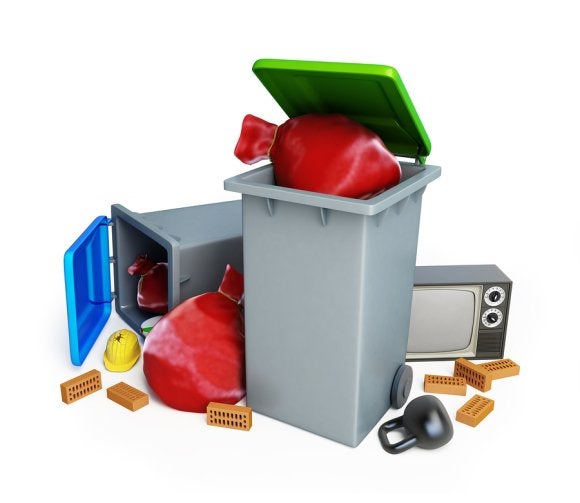
-
Restaurant Waste and Sustainability
Every single day, restaurants all across the country create a ridiculously large amount of waste. In fact, studies have shown that, in the course of a day, almost 50 million pounds of food are wasted at full-service restaurants , while more than 85 million pounds of food are wasted at fast-food restaurants. When you couple that with all of the drink cups, Styrofoam boxes, and paper products that are thrown out at restaurants, it’s not hard to see why landfills are filling up at an alarming rate. If you own a restaurant, you can help put a stop to this problem by doing better waste management and by offering customers recycling bins in Atlanta. Here are some tips for limiting the amount of waste you create.

Find Ways to Cut Back on the Amount of Food You Waste
Do your customers have trouble finishing most of your restaurant’s meals? If so, you may be offering them portions that are simply too large for them to finish. By offering smaller portions, you can cut the cost of your meals, reduce the amount of food you throw out, and eliminate the need for take-home containers that are not good for the environment. You can also trim your waste management costs when you create less waste overall.
Provide Recycling Bins If You Sell Products That Can Be Recycled
If you sell plastic water bottles or metal soda cans in your restaurant, you should set out recycling bins for your customers to use and call attention to them so that they recycle these kinds of products. Plastic and metal shouldn’t be discarded with your regular trash. By providing recycling bins, you will do your part to reduce the waste that you send to a landfill.
Offer Incentives to Customers Who Help Reduce Waste
Some restaurants have gotten creative in order to do better waste management. For example, certain coffee shops offer discounts to customers who bring their own reusable cups. This is a great way for businesses to entice their customers to help them along during the journey to sustainability.
-
Characterizing the Different Types of Industrial Waste
Industrial waste management in Atlanta is a crucial service for any business whose processes include manufacturing or production. Industrial activities produce a significant amount of waste, and without a comprehensive waste disposal program, the health and safety of your employees may be at risk. With so many different categories of industrial waste, it’s important to understand what materials can be reused and recycled, and how to properly manage and reduce waste disposal. Here are some facts about the different categories of industrial waste.
Chemical Waste
Chemical waste is typically generated by factories, processing centers, warehouses, and plants. This waste may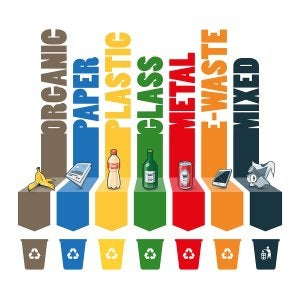 include harmful or dangerous chemicals and chemical residue, and waste disposal must adhere to careful guidelines. These guidelines are instituted and regulated by various government and environmental agencies, such as the Environmental Protection Agency, and the Occupational Safety and Health Administration. There are generally fines associated with non-compliance. Chemical waste must be segregated on-site, and waste disposal may need to be handled by a specialist to ensure compliance with health, safety, and legal requirements.
include harmful or dangerous chemicals and chemical residue, and waste disposal must adhere to careful guidelines. These guidelines are instituted and regulated by various government and environmental agencies, such as the Environmental Protection Agency, and the Occupational Safety and Health Administration. There are generally fines associated with non-compliance. Chemical waste must be segregated on-site, and waste disposal may need to be handled by a specialist to ensure compliance with health, safety, and legal requirements. Solid Waste
In industrial services, solid waste includes a variety of different materials, including paper, cardboard, plastics, packaging materials, wood, and scrap metal. Some of these materials can be reused and recycled by a recycling center. If you don’t have a comprehensive waste management plan that includes recycling, your waste disposal is not going to be as cost-effective or environmentally friendly as it could be. A recycling center can process the majority of industrial solid waste, effectively reducing your waste disposal costs.Toxic and Hazardous Waste
Toxic and hazardous waste is comprised of materials that can cause serious health and safety problems if waste disposal is not handled correctly. This type of waste typically includes dangerous byproducts materials generated by factories, farms, construction sites, laboratories, garages, hospitals, and certain production and manufacturing plants. The EPA and state departments regulate toxic and hazardous waste disposal. This waste disposal is only legal at special designated facilities around the country.
RECENT POSTS
categories
- Uncategorized
- Waste Management Atlanta
- Waste Disposal and Recycling
- Hazardous Waste Disposal
- Chemical waste removal
- solid waste removal
- R3 Program
- Sustainable Organizations
- Sustainable Waste Removal
- Commercial Waste Removal
- Materials Management Program
- Dumpster Rental
- Roll Off Dumpsters
- Construction Site Waste Removal
- Sustainability
- Recycling in Atlanta
- Industrial Recycling
- Industrial Waste Removal Services
- Southern Waste & Recycling
- Waste Removal Atlanta
- Waste Specialists
- Atlanta
- Infographic
- Front Load Dumpsters
- Rear Load Dumpsters
- Reusable Electronics
- Dump Truck Atlanta
- Recyclable Electronics
- Trash Compactors
- Recycling
- Recycling Program
- Office Recycling
- Metal Recycle
- Electronic Waste
